
Read our 2024 annual report

Knowledge Hub
“My grandson was 16 months old. There was a big flood and everything was underwater. We were sitting on the cot to get away from the water. At some point, my grandson fell into the water and died.”
It has been six years since Malika Begum lost her grandson. Every year since, the water has returned. She sits in her tin-walled, one-room home in northern Bangladesh, telling a story that is both personal and national.
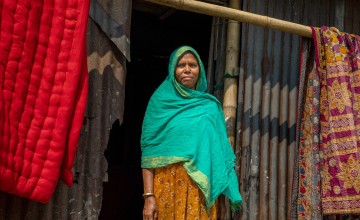
A nation under water
Two-thirds of Bangladesh lies less than five metres under sea level, and up to 30% of the country is flooded during the annual monsoon season, destroying crops, shelter, and lives. Every four or five years, even more severe flooding covers 60% of Bangladesh – a national disaster in every sense.
People living in extreme poverty, such as Malika, are especially vulnerable to the effects of climate change. In Malika’s home district of Rangpur, flooding is now part of life, and the difference between an annual event and an annual catastrophe is adaptation.
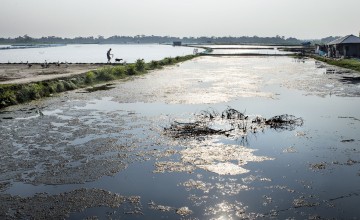
The Zurich Flood Resilience Programme
The most effective adaptation for flooding in this case is simple in concept but demands money that Malika and her community do not have: Raising society above the flood line.
Since 2018, Concern Worldwide has been a member of the Zurich Flood Resilience Alliance, a multi-sectoral partnership focusing on finding practical ways to support communities in developed and developing countries strengthen their resilience to flood risk. As part of the Alliance's flood resilience programme, Malika’s home has been raised on a concrete plinth above the flood line.
Concern has also constructed water pumps above the flood line, ensuring that clean water is always available.
Over 80,000 Bangladeshis are supported by the Zurich Flood Resilience Programme.
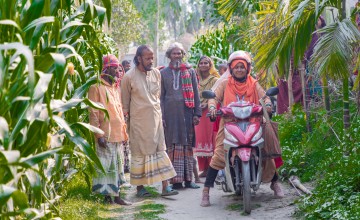
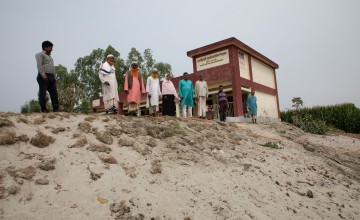
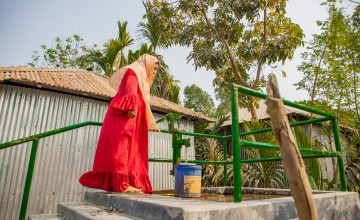
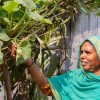
“It was very difficult for us to protect the children. The water used to flood down, we had fever and diarrhoea, but now it’s much safer. There’s no inundation. If there is a flood, we can use the road, we can travel.”
Preparing together by sharing knowledge
Complementing the construction of flood-resilient infrastructure, Concern has established a self-help group for community members to share knowledge and collectively prepare for flooding.
The self-help group, which has been running since 2019, has seventeen attending members, who represent 1700 households in the district.
The members share techniques and innovations such as bringing livestock indoors during flooding, utilising local materials to prevent soil erosion, how to build bamboo bridges, the introduction of vegetables that thrive despite the changing climate, a flooding early-warning system, and more.
“We prepare for the floods immediately after getting the early warning”, says Malika. “We have the dry food ready. We raise our beds, and keep all our things raised, including the livestock. If the flood is severe, we go to the community flood centre. I learned a lot from this project.”
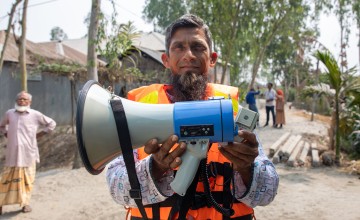

After advice heard in the self-help group, Malika now grows pumpkins and leafy vegetables in her raised garden - for which the seeds were provided by Concern Worldwide. Before, Malika would buy vegetables from the market. If money was short, she would eat only rice with dried chillies.
Standing under the green canopy of her garden, Malika feels the shoots of her new vegetables. The garden provides much more than food - Malika's future, in her home, is more secure. She has hope.
"I like taking care of it. I am very proud. I water it every day."




